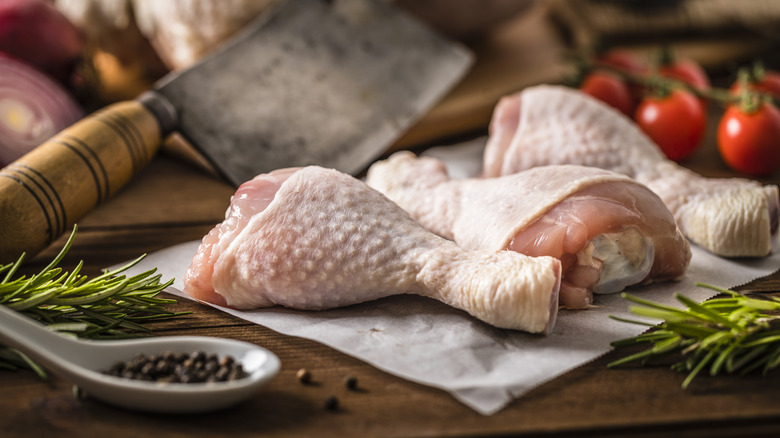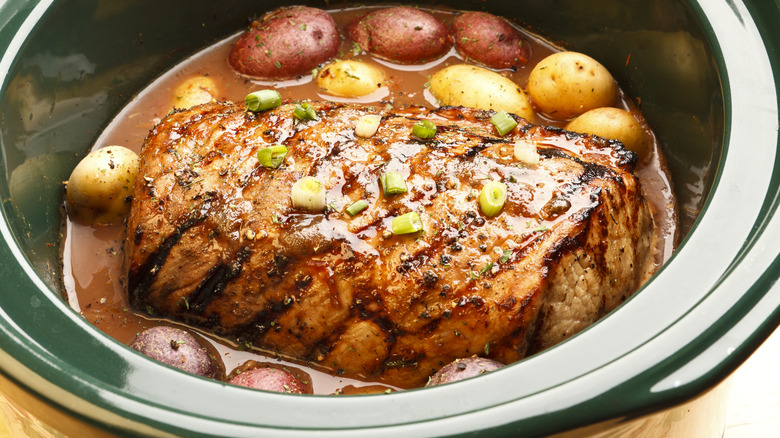What You Need To Know Before Putting Lean Meat In A Slow Cooker
It's always convenient to throw ingredients into a slow cooker and forget about it until dinnertime. But when you're adding meat that's a little bit leaner into the pot, there are extra precautions to take so your dinner doesn't dry out, get overcooked, or end up tough.
Slow cookers are built to accommodate foods that need the "low and slow" treatment, such as roasts, stews, soups, and other meals that benefit from a long braise. This works best for larger, fattier meats such as pork shoulder, chuck roast, and ribs. Meanwhile, meats like chicken breast, pork chops, and sirloin will overcook long before most slow cooker recipes say they're finished.
This doesn't mean you can't put these meats in a slow cooker — it just means there are a few extra steps to take. Adjusting cook time and choosing the right lean meats — such as bone-in versus boneless — will make all the difference.
Pick the right meat for your meal
Fattier, heftier cuts of meat will always cook better in the slow cooker. Ideally, you want something marbled with fat that can render down during the long, slow cooking process. But if you need to use leaner meats, some work better than others.
For chicken, dark meat will yield the best results, especially chicken thighs. Bone-in meats will also work better than boneless, skinless meats, as these cuts take longer to cook (so there's less of an opportunity for overcooking or drying out). Drumsticks, skin-on, bone-in thighs, and even bone-in breasts will do okay; but avoid boneless, skinless chicken breasts, as they have a tendency to become stringy and tough quickly.
For pork, you can use pork chops, but go for a thick-cut, bone-in pork chop with a little visible fat on it. Thin, boneless, extra-lean pork chops will turn into leather in an instant.
Avoid overcooking for best results
Regardless of which lean meat you're putting in the slow cooker, you'll get the best results with an adjusted, shorter cook time. Many slow cooker recipes will instruct you to simmer your meal for longer than six hours — this is typically far too long for lean cuts, which will cook down and shrivel long before the rest of the meal is finished.
Though low, slow, sustained cooking will help to break down connective tissue and tenderize larger cuts, smaller, leaner meats don't need this treatment. Ideally, you don't want to cook your lean meats for any longer than two to four hours in the slow cooker, and be sure to check on them often.
If you've already accidentally overcooked your meat, don't fret. Adding a little liquid can help, such as gravy or broth. Or if it's a little too tough to eat as-is, you can also shred the meat and add it into other recipes, such as soup, stew, or sauce.


